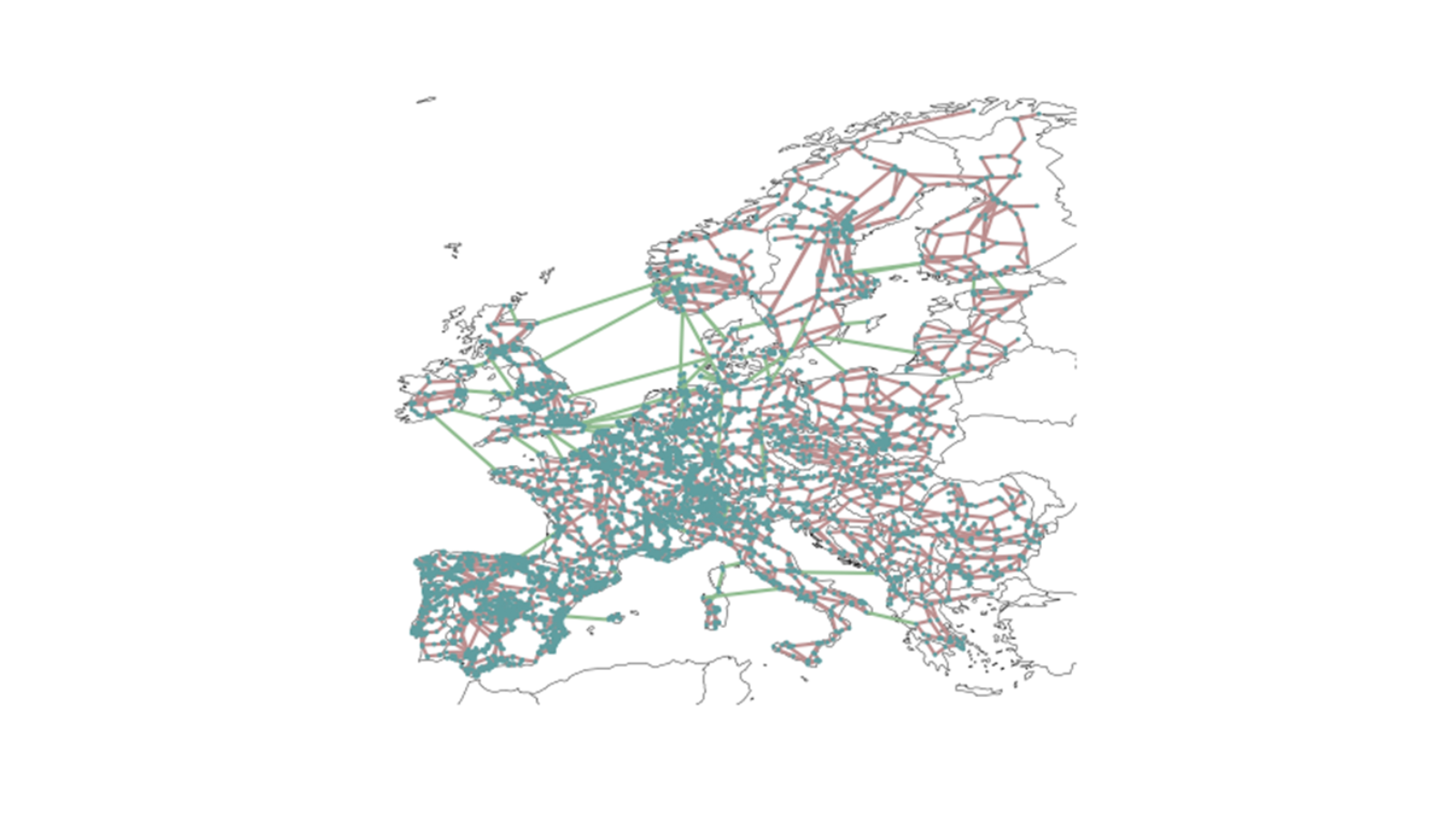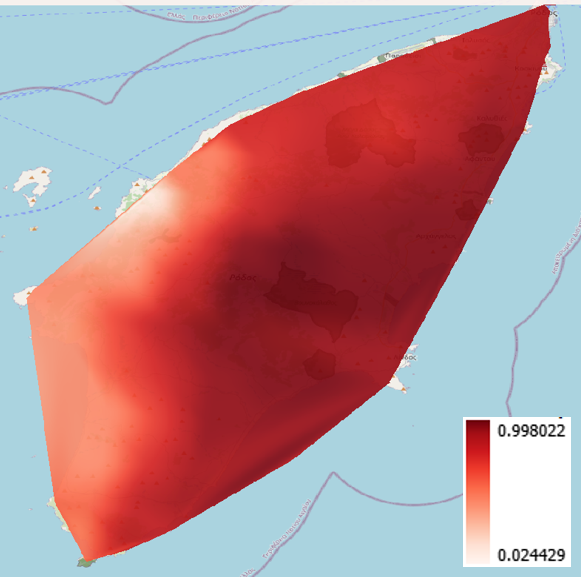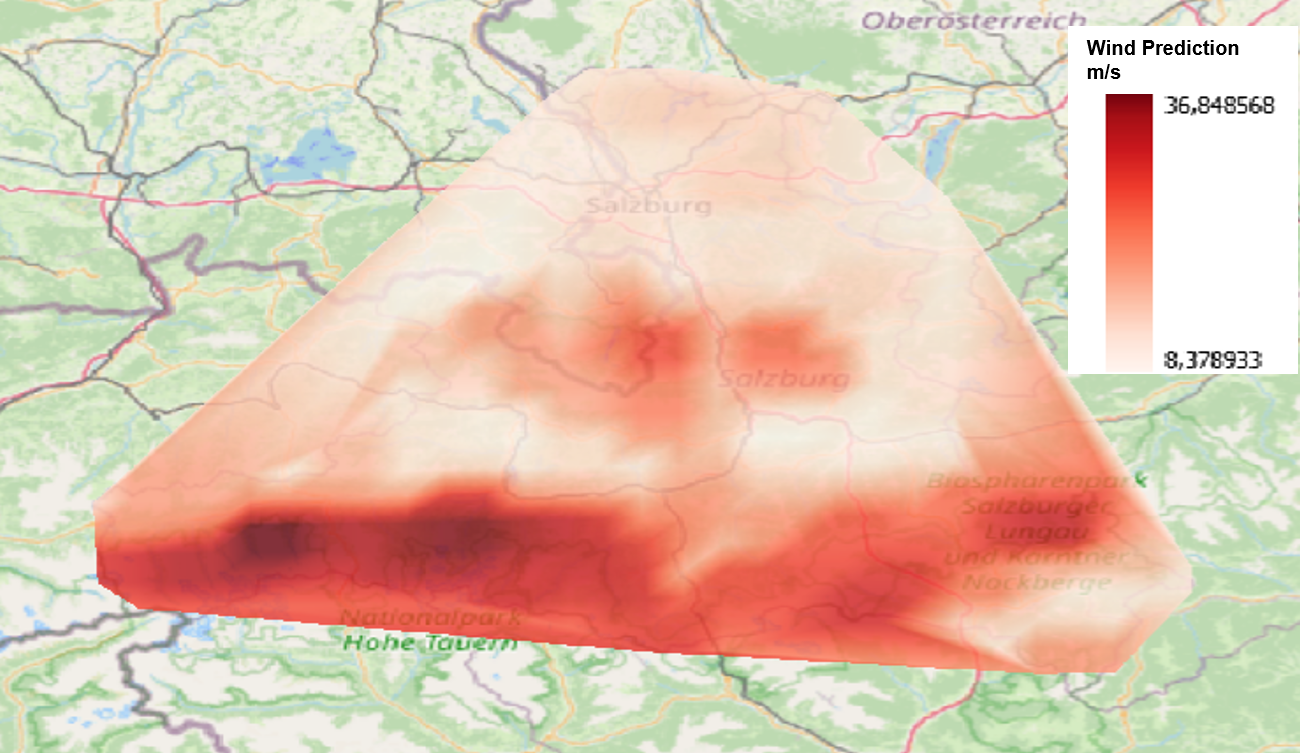
Electrical system from Pypsa-eur.
As experts in sustainable energy solutions, IREC is working on two transformative EU initiatives: the LOCALISED Project, focused on localized decarbonisation strategies, and ICARIA (Improving ClimAte Resilience of crItical Assets), dedicated to safeguarding critical infrastructure from climate threats. In this regard, within ICARIA, IRECa ims to evalaute and ensure resilience of Europe’s energy networks can withstand escalating hazards like wildfires, floods, and extreme winds.
ICARIA project
ICARIA is a Horizon Europe-funded project that employs cutting-edge methodologies to assess risks to energy grids, water networks, and transport. Our role at IREC focuses on the electricity sector, where we analyze climate impacts on power infrastructure and design actionable resilience strategies.
ICARIA Use Cases: Assessing Climate Risks
In order to achieve the results, we’ve developed a robust methodology to assess climate risks to energy grids. Our approach involves:
- Data collection: Gathering historical climate data, such as temperature and precipitation records.
- Climate models and forecasting: Using climate models to predict future climate scenarios, including the potential for extreme weather events.
- Risk assessment: Evaluating the vulnerability of power infrastructure to these climate risks.
This methodology has been applied into two different use cases in Austria and Greece, which also consider different extreme events such as wildfires and windstorms.

Fire risk on Rhodes island.
Rhodes Island, Greece: Wildfire Risk to Overhead Power Lines
Our analysis in Rhodes focused on quantifying wildfire risks to overhead electricity infrastructure under different climate scenarios. We used a combination of historical Fire Weather Index (FWI) data and future climate projections to map fire risk across the island.
To assess vulnerability, we evaluated the proximity of power lines to natural vegetation (a fuel source) and roads (potential ignition points). Our results showed that 50.34% of Rhodes’ overhead network (87.82 km) faced a high combined risk, prioritizing these segments for upgrades like fire-resistant materials or vegetation clearance.

Wind speed predictions on Salsburg.
Salzburg, Austria: Windstorm Impacts on Power Infrastructure
In Salzburg, we evaluated wind-driven risks to transmission lines and towers in alpine regions. Our analysis focused on wind speed predictions and their alignment with infrastructure fragility thresholds.
We used a Triangular Irregular Network (TIN) model to interpolate wind data across the region, generating raster layers of predicted wind speeds. Our results showed that while current wind gusts are below critical thresholds, proactive resilience measures are necessary to ensure the grid remains robust against future wind extremes.
Why the work in ICARIA Matters
Our findings in Rhodes and Salzburg highlight the urgent need for utilities to allocate resources efficiently, balancing safety, cost, and reliability. By addressing climate risks proactively, we can:
- Reduce power outages: Minimize disruptions to energy supply.
- Protect infrastructure: Prevent damage to power lines and towers.
- Ensure grid resilience: Maintain a stable and reliable energy network.
ICARIA’s work in assessing climate risks to energy grids is crucial for building resilience against climate change leading to recommendations and planning. Our technical expertise and regional focus enable us to provide actionable recommendations for utilities and policymakers to minimize such risks. By working together, we can ensure Europe’s energy networks remain secure, efficient, and sustainable for generations to come.

Recent Comments